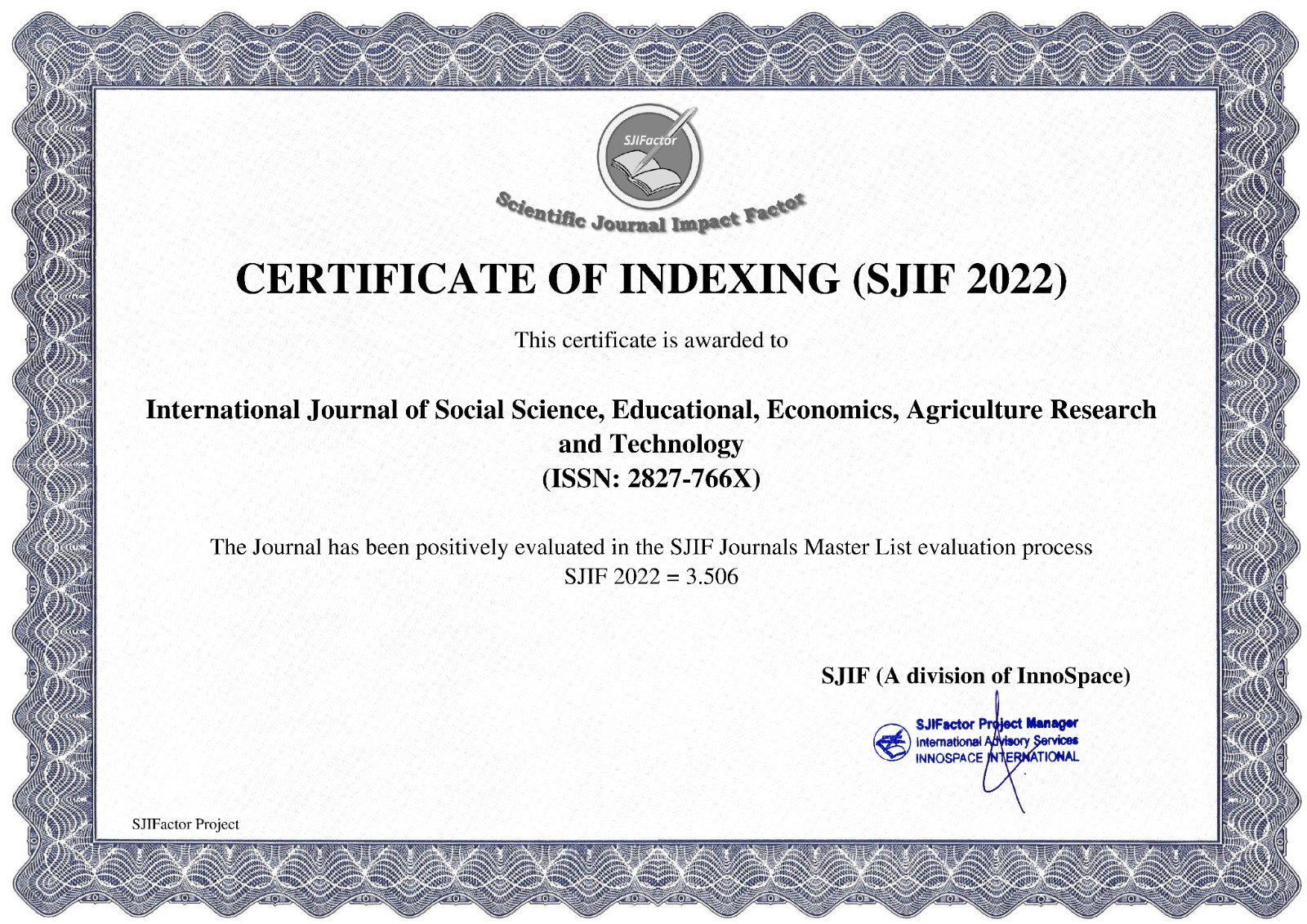A SYSTEMATIC LITERATURE REVIEW ON: STEWARDSHIP THEORY (2020 – 2024)
Main Article Content
Devica Amanda
Sambas Ade Kesuma
This study reviews the development of research related to Stewardship Theory published in the 2020–2024 period using a Systematic Literature Review (SLR) approach with PRISMA guidelines. Stewardship Theory emphasizes the behavior of managers as stewards who act in the interests of owners or organizations based on the values of trust, moral responsibility, and loyalty. Data were obtained from the Scopus database, resulting in 21 articles that met the research criteria. The review results indicate that this theory is widely applied in the context of public organizations, family businesses, and risk management, with a focus on ethical leadership, internal audit systems, and organizational transparency. Conceptually, this study strengthens the understanding that stewardship values such as trust, social responsibility, and organizational ethics have a crucial role in driving sustainable governance and long-term performance. This study also provides direction for further research related to the application of Stewardship Theory in modern governance and management.
Oware, K. M., & Amoako, G. K. (2022). CEO characteristics and disability employment of listed firms: Evidence from India. Cogent Business & Management, 9(1), Article 2119826. https://doi.org/10.1080/23311975.2022.2119826
Strobl, A., Kallmuenzer, A., & Peters, M. (2023). Entrepreneurial leadership in Austrian family SMEs: A configurational approach. International Small Business Journal. https://doi.org/10.1177/02662426221084918
Lin, W.-T., & Wang, L. C. (2021). Family firms, R&D, and internationalization: The stewardship and socio-emotional wealth perspectives. Asia Pacific Journal of Management. https://doi.org/10.1007/s10490-018-9636-2
Bjurstrøm, K. H. (2020). Principal–Agent or Principal–Steward: How ministry–agency relations condition the impact of performance management in the steering of government agencies. Public Performance & Management Review. https://doi.org/10.1080/15309576.2020.1739087
Saidin, S. Z., & Engku Ali, E. I. (2023). The relationship between organizational characteristics and the quality of local government financial statements. Public and Municipal Finance, 12(2). https://doi.org/10.21511/pmf.12(2).2023.10
Saidin, S. Z., & Engku Ali, E. I. (2023). The relationship between organizational characteristics and the quality of local government financial statements. Public and Municipal Finance, 12(2). https://doi.org/10.21511/pmf.12(2).2023.10
Silalahi, S., Hanif, R. A., Supriono, & Wiguna, M. (2023). Determinants influencing fraud prevention in e-procurement: Empirical evidence from Indonesia. Innovative Marketing, 19(4). https://doi.org/10.21511/im.19(4).2023.16
Caiffa, M., Farina, V., & Fattobene, L. (2021). CEO duality: Newspapers and stock market reactions. Journal of Risk and Financial Management, 14. https://doi.org/10.3390/jrfm14010035
Mansouri, A., Chafai, M., & Moufdi, N. (2024). Family business governance: An integrated approach using agency, stewardship, and social capital theories. Corporate & Business Strategy Review, 5(1). https://doi.org/10.22495/cbsrv5i1art11
Øllgaard Bentzen, T. (2021). Breaking the vicious circle of escalating control: Connecting politicians and public employees through stewardship. Administrative Sciences, 11(3). https://doi.org/10.3390/admsci11030063
Abdulhussein, A. S., Al-Refiay, H. A. N., & Wahhab, A. M. A. (2023). The impact of internal auditing on corruption: Evidence from the emerging market. Journal of Governance and Regulation, 12(1). https://doi.org/10.22495/jgrv12i1siart15
Al-Al-Msiedeen, J. M., & Al Sawalqa, F. A. (2021). Ownership structure and CEO compensation: Evidence from Jordan. Asian Economic and Financial Review, 11(5). https://doi.org/10.18488/journal.aefr.2021.115.365.383
Aliahmadi, S. (2024). Does CEO power moderate the link between labor productivity and financial performance: Agency theory or stewardship theory. Asian Journal of Accounting Research. https://doi.org/10.1108/AJAR-04-2022-0111
Ameen Ali Bin Afif, A., Ishak, Z., & Sawandi, N. (2024). The moderating role of organizational subsectors on the relationship between CEO duality and nonprofit performance. International Review on Public and Nonprofit Marketing. https://doi.org/10.1007/s12208-024-00410-z
Khikmah, S. N., Rohman, A., & Januarti, I. (2023). The role of internal audit and leadership style in increase of fraud prevention: A stewardship theory perspective. Corporate & Business Strategy Review. https://doi.org/10.22495/cbsrv4i4siart8
Keplinger, T., Puck, J., & Feldbauer-Durstmüller, B. (2023). Risk management during the COVID-19 crisis: Insights from an exploratory case study of medium-sized family firms. Journal of Family Business Management. https://doi.org/10.1108/JFBM-03-2022-0038
Kachaner, N., Shaw, E., & Santoro, G. (2024). How do family responsible ownership practices enhance social responsibility in small and medium-sized family firms? Journal of Family Business Strategy. https://doi.org/10.1016/j.jfbs.2024.100648
Azizi, M., Maley, J. F., & Dabić, M. (2022). A stewardship perspective in family firms: A new perspective for altruism and social capital. Journal of Business Research. https://doi.org/10.1016/j.jbusres.2022.01.103
Riepl, J., Mitter, C., & Kuttner, M. (2024). Risk management during the COVID-19 crisis: Insights from an exploratory case study of medium-sized family businesses. Journal of Management Control. https://doi.org/10.1007/s00187-023-00339-y
Aliahmadi, S. (2024). Does CEO power moderate the link between labor productivity and financial performance: Agency theory or stewardship theory. Asian Journal of Accounting Research. https://doi.org/10.1108/AJAR-04-2022-0111
Ameen Ali Bin Afif, A., Ishak, Z., & Sawandi, N. (2024). The moderating role of organizational subsectors on the relationship between CEO duality and nonprofit performance. International Review on Public and Nonprofit Marketing. https://doi.org/10.1007/s12208-024-00410-z






















